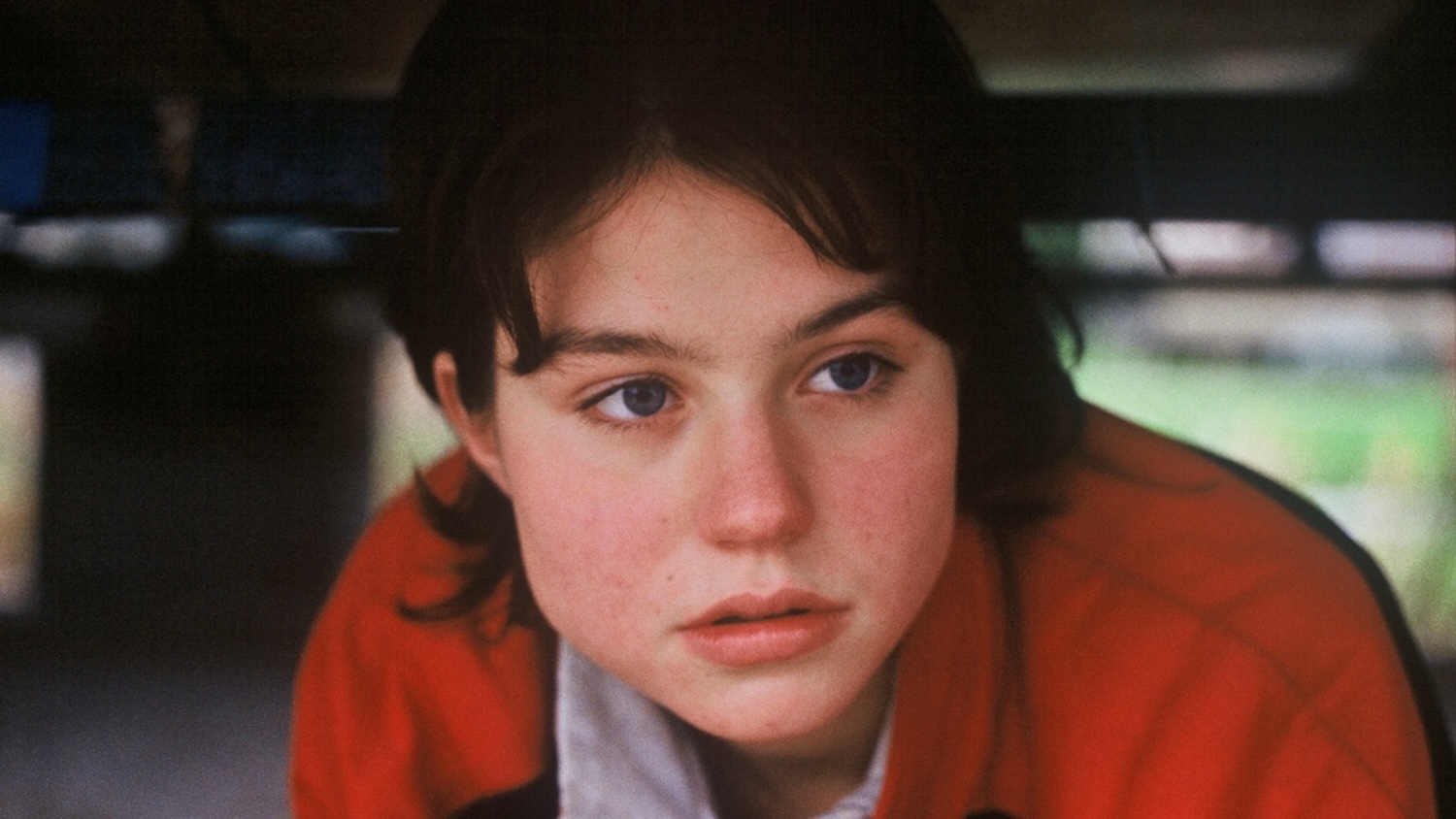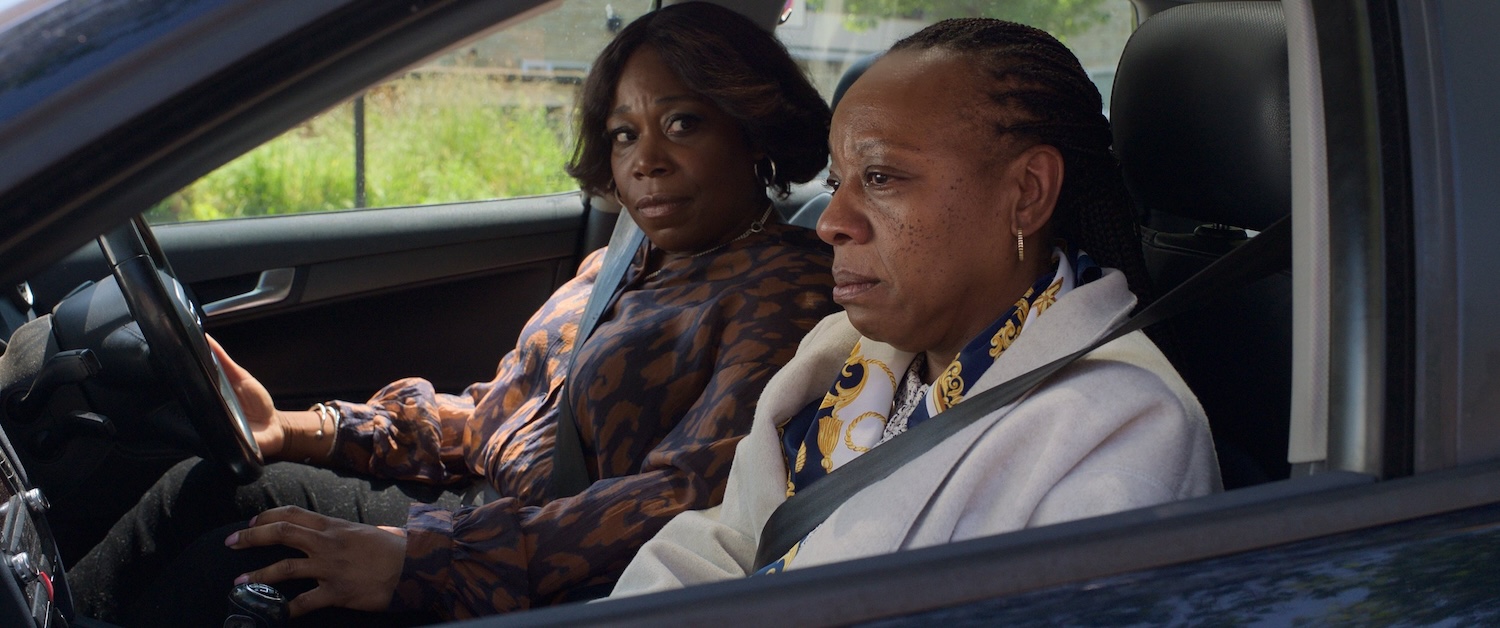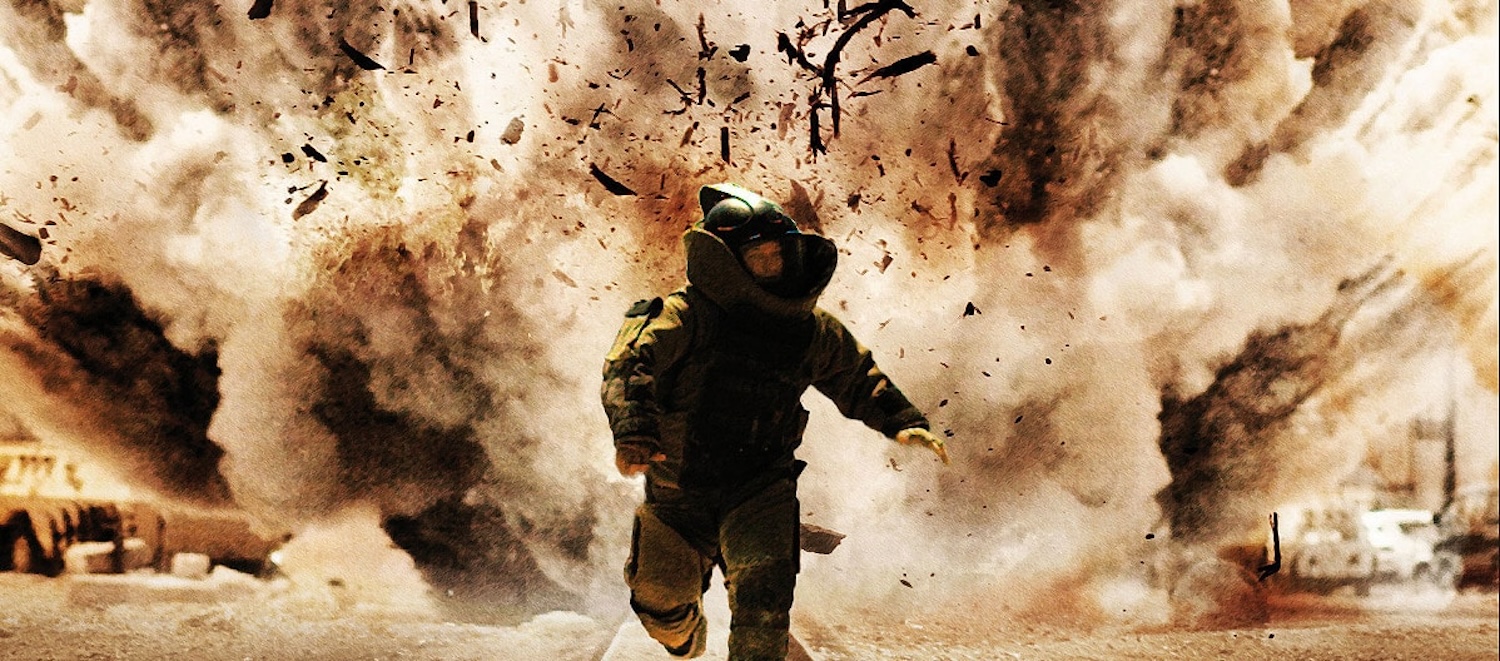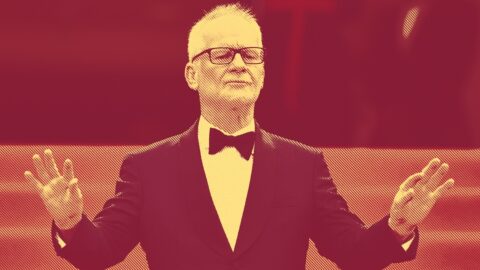Cannes claims to be “loyal to its auteurs”, but when former darlings like Mike Leigh and Jim Jarmusch are denied entry to the party, the nature of its gatekeeping powers once again comes under the spotlight.
—
Back in 2015, when Portuguese filmmaker Miguel Gomes learned that his six-hour Arabian Nights trilogy had been snubbed from Cannes’ main competition, he didn’t simply swallow his pride. Instead, Thierry Frémaux, the artistic director of the festival, aka kingmaker of the international film circuit, offered him a diplomatic solution: a slot in Un Certain Regard, Cannes’ second-tier showcase. An alternative Gomes clearly saw as a consolation prize, and promptly declined. For him, it was the competition or nothing at all.
So, in a calculated countermove, and perhaps a touch of sweet revenge, Gomes took his magnum opus to the Directors’ Fortnight, the independent parallel section which until a few years back, was considered the rebellious alternative to the official selection. The trilogy was met with rapturous applause. Critics hailed it as a masterpiece, with the French newspaper Libération calling it “an epic journey of spectators” and the type of work that is “hard to find in the history of the Festival.” It was enough to leave Frémaux with a petit faux pas, inadvertently calling his judgment into public question.
A few years later, the wound still visibly festering, Frémaux confided to a Portuguese film critic that Gomes had been “very violent” with the festival. The rejection of his films in competition, he explained, came from a fear that the audiences would feel disappointed after the triumph of Tabu (2012). Cannes wanted to “protect the films.” Then, abandoning his usual diplomatic reserve, Frémaux couldn’t resist twisting the knife: Gomes was perhaps “paying too much attention to the journalists who call him a genius… And you know what? I like the minority, but Miguel Gomes is the majority. I like humble people.”
This little spat might say quite a lot — or maybe nothing at all — about the politicking that governs the highest echelons of film festival culture. In the case of Cannes, the mechanisms behind who gets the coveted golden ticket to their main competition are rarely solely about art or credentials; they’re often a complex dance of power, relationships and fitting into the festival’s carefully curated spectacle – or, more crucially, whether the spectacle deems you a desirable fit.
The selection process of the festival is a mystery that captivates the film world every year, with predictions flying around and intensity mounting as cinephiles, critics and the terminally online analyse with devoted scrutiny as to who might gain entry to this notoriously exclusive soirée. Yet, most of the time, the final selection remains stubbornly elusive.

The Palme d’Or Rejection Club
This conversation erupted with renewed vigour last year when British master Mike Leigh, a proud owner of a Palme d’Or (and, for the record, also a Golden Lion), saw his latest Hard Truths (2024) flatly rejected by not only Cannes but subsequently by Venice and Telluride.1It finally premired in Toronto. It was like watching the Pope being denied entry to Easter Mass.
A few years ago, something similar happened with Serbian filmmaker Emir Kusturica. Standing among what the festival calls “the notable nine” — rare two-time Palme winners (for When Father Was Away on Business in 1985 and Underground [above] in 1995) — Kusturica discovered that proximity to power can be tricky when it’s the wrong kind of power. When his 2016 film On the Milky Road faced rejection by Fremaux, he attributed it directly to his support for Vladimir Putin, accusing the festival of political bias: “I have suspicions that someone gave an order that my film shouldn’t be accepted.” Given his bromance with Putin, the suspicion wasn’t entirely unfounded. But then Cannes screened a restored copy of Underground in 2023, just a year after banning Russia’s official delegation from the festival over the Ukraine war, leaving Frémaux’s selection logic stranded in a geopolitical no-man’s-land.
The pattern repeated with unmistakable familiarity this year, only this time with a little twist. Now it was the American indie pioneer Jim Jarmusch who was put on the spot. His star-studded2With Cate Blanchett, Vicky Krieps, Adam Driver, Mayim Bialik, Tom Waits, Charlotte Rampling, Indya Moore and Luka Sabbat. Father, Mother, Sister, Brother was reportedly confirmed, then unceremoniously dropped from the lineup, leaving the film world collectively reeling. For Jarmusch, a Cannes veteran with 11 previous selections, including a short film Palme d’Or in 1993 (Coffee and Cigarettes: Somewhere in California) and the Grand Prix for Broken Flowers in 2005, the rejection carried the sting of dynastic betrayal.
So when word spread that Jarmusch’s latest had been dropped from the lineup, online speculation spiralled again: Was the film simply not good enough? Had he somehow fallen from grace? Or were there already too many American movies (six this year)3 The Phoenician Scheme (Wes Anderson), Eddington (Ari Aster), New Wave (Richard Linklater), The Mastermind (Kelly Reichardt), Die My Love (Lynne Ramsey) and The History of Sound (Oliver Hermanus). in the running? If Cannes is truly “loyal to its auteurs,” as Fremaux proudly declared when announcing the 2025 lineup, then what happened to these decorated regulars who once seemed untouchable?

What Constitutes Institutional Status?
In contrast to them, few filmmakers embody Cannes royalty more perfectly than the Dardenne brothers. The Belgian duo has become practically synonymous with the Croisette, having premiered nine of their 13 features in Competition, with the new Jeunes Mères (2025) set to become their tenth in just a few weeks. Add their two Palmes d’Or, Rosetta in 1999 and The Child in 2005 — which ironically was awarded by a Kusturica-headed jury — and a handful of other major prizes, and you’re looking at something beyond consistency. This is institutional status.
The Belgian brothers occupy a privileged position at the intersection of Cannes’ artistic and political identities. Their unflinching social realist dramas, with their stripped-down aesthetics and moral urgency, have become something of a gold standard for what constitutes a “prestige film” in the Frémaux era. Their reputation as serious auteurs is so firmly established that even a major star like Marion Cotillard has expressed being “very surprised” upon being cast in one of their films. A true testament to the Dardennes’ cultural capital, exclusively sponsored by Cannes.
Their work, alongside that of Ken Loach (not coincidentally, also a two-time Palme winner), forms the cornerstone of what might be called Cannes’ ethical brand — films that engage with specific social issues while maintaining a certain compositional austerity. This curated image of cinema as both socially relevant and artistically pristine has become foundational to the festival’s self-image. Yet, when this vision dominates, the selection process starts to feel less like an open celebration of diverse voices, as it often claims to be, and more like an exercise in sustaining a rigorously constructed narrative about what cinema should be.
And there’s nothing inherently wrong if the festival has chosen to reserve that space for the Dardennes or Ken Loach. But once that choice becomes a doctrine, aesthetic orthodoxy sets in. The festival’s loyalty doesn’t just celebrate a particular kind of filmmaking; it begins to enforce it. And when that happens, even long-standing auteurs who once defined its identity can find themselves locked out. Not because their work is no longer relevant, but because it no longer fits the preferred variation of the moment.

Mike Left Out
Mike Leigh might be the longest-suffering proof of how fragile this contradiction can be. While his films share a certain sensibility with these filmmakers, Leigh has always been a bit of an outsider. He has jumped from kitchen-sink dramas to biographical epics, detouring through musical farce along the way. His characters are often unlikable, messy and resistant to change. And they don’t follow the usual arcs of redemption or moral clarity.
Maybe for that reason, his relationship with Cannes has always been a little more… complicated. In 1993, Naked earned him Best Director at the festival, and just three years later, Secrets & Lies (1996) took the Palme d’Or, propelling both Leigh and the film into international acclaim, earning Oscar nominations in all five major categories.
But then right after that, the cold shoulder. His follow-up, Career Girls (1997), was quietly shuffled off to a private market screening at Cannes. Topsy-Turvy (1999), one of his most critically beloved works, premiered in Venice. A pattern began to form: Vera Drake (2004), famously rejected by Cannes, went on to win the Golden Lion in Venice. Then, seemingly back in favour, Leigh returned to Competition at Cannes with Another Year in 2010 and Mr. Turner in 2014. Both warmly received, reaffirming his Cannes credentials. But the reconciliation didn’t last long. Peterloo (2018) was once again turned away by Cannes, only to be welcomed by Venice with open arms.
Asked by The Hollywood Reporter which of the two festivals he preferred, Leigh offered the perfect deadpan: “If the girl doesn’t like you, you don’t want to go out with her, really.” A fitting metaphor for a filmmaker who has somehow become both the darling and the reject of cinema’s most glamorous prom night.
Which brings us to the main question: why was Hard Truths (above) — by all accounts, a well-received, critically-lauded film — rejected by a festival that once helped define Leigh’s global reputation? The silence from Cannes left Leigh and his team adrift in doubt. “We spent the first half of the last year thinking we made a rubbish film,” he admitted on the podcast Awards Chatter. A bittersweet confession from a veteran who knows all too well how easily a cold shoulder can cloud even the sharpest instincts.

The 3D Chess Grandmaster
The reasons behind a film’s acceptance or rejection at Cannes are often murky; shrouded in politics, strategic timing and, dare we say, territorial warfare too. We can only speculate. Mark Peranson, former editor-in-chief of the late Cinema Scope and former head programmer at the Berlinale, once offered a hilariously scathing critique of Frémaux’s tendency to sideline films into “lesser” sections of the festival, often seen as a way to block them from premiering elsewhere. In a mock open letter to Frémaux, written under the alter-ego pseudonym Lisandro AlonsoGPT, Peranson (or perhaps ChatGPT) took aim at the “blatant favoritism and insidious tactics” that led to Alonso’s Eureka (2023, above) being placed in the Cannes Premiere sidebar; a section that according to the festival’s website, is designed “to welcome big names in cinema whose works do not necessarily meet the Competition criteria.” Peranson later argued that “to betray this legacy in favor of protecting territorial interests is a disservice to filmmakers and the audience alike.”
It’s not the first time Frémaux has been described as a master manipulator — less curator, more chess grandmaster, shifting pieces not purely on artistic grounds, but simply to protect his hold on the board. Another case in point was the long-awaited return of Spanish filmmaker Víctor Erice after a 30-year absence. His film Cerrar Los Ojos (2023) was widely expected to premiere in competition. Instead, it was also demoted to Cannes Premiere. The decision raised eyebrows and surprised Erice himself, who had been led to believe the film was being considered for the main slate. After this little scandal got some traction online, Frémaux excused the decision, claiming the film was submitted too late to the festival. But Erice wasn’t buying it. In perhaps the most elegant protest, he not only skipped his own premiere at Cannes but published an open letter in El País, affirming that the film was actually submitted on time while criticising the festival’s opaque decision-making process.
He also revealed that he had been offered a prestigious opening slot at Directors’ Fortnight, complete with a tribute in his honour. An offer that was immediately withdrawn when Cannes, at the last minute, decided to place his film at Cannes Premiere. His letter, citing Frémaux’s “lack of consideration,” poured premium gasoline on an already blazing conversation about the festival’s politics.

Cannes You Believe It?
We could spend all day here listing Cannes’ unusual decisions. From films famously rejected that found glory elsewhere — Bertrand Bonello’s The Beast (2023), Lucrecia Martel’s Zama (2017), or Grand Prix winner László Nemes with Sunset (2018) — to the supposed 1,845(!) Indian films that were allegedly turned down in 2019, the examples are endless. The real reasons behind these omissions we will likely never know. It’s also curious to note that the Cannes selection committee, together with Venice, is not even listed on their website. And when they operate with the secrecy of a Vatican conclave, minus the smoke signals, divining their tastes becomes a game of cinephile astrology. Their process invites speculation, interpretation and no shortage of conspiracy.
Every now and then, though, a peek behind the curtain does emerge. Frémaux confessed in his 2017 memoir Sélection Officielle that passing on Kathryn Bigelow’s The Hurt Locker (above) in 2008 was his “biggest regret.” The team had seen an unfinished version of the film and were, in his words, “very tired and just said no.” The film went on to win Best Picture at the Oscars, an outcome likely to sting, especially given Frémaux’s recent fondness for framing Cannes as an oracle of award-season success. With recent Palme d’Or winners like Parasite (Bong Joon-Ho, 2019), Anatomy of a Fall (Justine Triet, 2023), Anora (Sean Baker, 2024) going on to triumph at the Oscars, he might feel justified.
The 2024 lineup alone4 Including The Substance (Coralie Fargeat), Flow (Gints Zilbalodis), Emilia Pérez (Jacques Audiard), Anora, The Apprentice (Ali Abbasi), The Seed of the Sacred Fig (Mohammad Rasoulof), The Girl with the Needle (Magnus von Horn) and the short The Man Who Could Not Remain Silent (Nebojša Slijepčević). scored Cannes a historic 31 Oscar nominations and 9 wins. Drunk on such validation, it’s no surprise the festival seems determined to push Venice out of the way and position itself as the new launchpad for awards glory. After these two past editions, no one can blame Frémaux for starting to believe in his own clairvoyance.
But Cannes’ influence goes beyond predicting golden statues. It’s not just about prestige, it’s also about power. The festival decisions ripple far beyond the Croisette, shaping box office globally, critical discourse and increasingly defining which films get to enter the conversation at all. The kind of privilege that gives the festival license to do as it pleases, but which also means occasionally leaving its darlings out in the cold — or even feeling comfortable enough to offer post-screening editing tips to its celebrated filmmakers.5As it apparently did with Alonso’s Eureka. The Festival’s motto could as well be the French equivalent of “Because We Said So”.
Nevertheless, such almighty powers can have a funny side effect: they’re intoxicating. And that intoxication leaves little room for compromise or self‑reflection. No explanations, just the unmistakable shrug of a festival that knows it holds all the cards. Not that they’re required to explain themselves, but when you’re the gatekeeper of international cinema, that opacity carries weight and a certain responsibility.
Still, for all this talk of power and foresight, Cannes remains gloriously unpredictable. Next year, we’ll once again try to guess which names will grace the Competition lineup, and we’ll once again act shocked at the big-name rejections. An annual ritual as predictable as it is absurd. But as Variety’s editor Elsa Keslassy sharply suggested, perhaps we should all retire from the annual prediction sweepstakes. Trying to guess Frémaux’s selections is like trying to predict which way a cat will jump — intellectually stimulating but ultimately humbling.
And maybe that’s the whole paradox of Cannes. One hard truth is that yesterday’s Palme winners can become tomorrow’s rejects; another is that the festival thrives on this very unpredictability. Cannes has perfected the art of keeping the cinema world off‑balance, and it knows it can get away with it. That, more than anything, is exactly what makes it so maddening — and so fascinating — to watch.
Wellington Almeida is a programmer, a film writer and a devoted cat lover.




